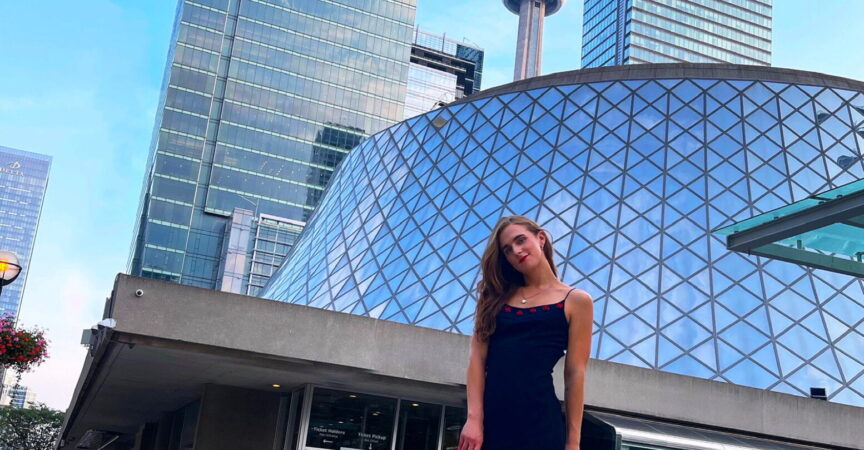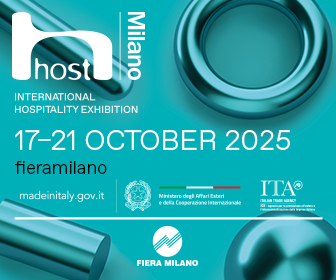The Conversation with Miss Niki Nikita
Multi-disciplinary Performance Artist, erstwhile hospitality worker, and proud Trans woman.
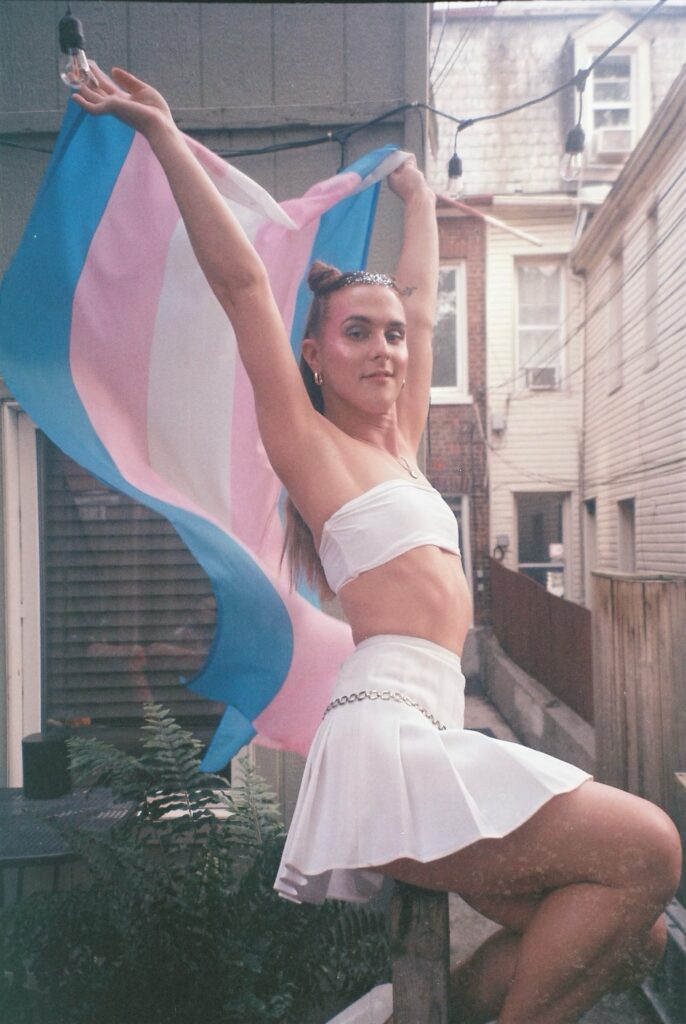
Like many artists, Miss Niki Nikita’s story includes formative chapters spent in the bold and bustling world of hospitality.
From learning the ropes serving at hometown Legion Hall events to bartending at Oliver and Bonacini’s The Carlu, and then serving for seven years at Pizza Libretto on Ossington Avenue in Toronto (and a few less-tailored gigs in between), Niki has always felt that, while hospitality was always going to be a means to an artistic end, it provided enduring friendships and real-world training in performance and connection.
Now, having entered into an equity contract with Soulpepper Theatre and preparing for an upcoming five-episode shoot for a CBC Gem series, Niki offers a unique and personal vantage point on the LGBTQ2S+ experience within the hospitality sphere—as an employee, a patron, and a Trans woman.
MENU had the privilege of connecting with Niki, to hear her take on the nuanced dynamics of inclusivity and acceptance within the industry, and left the conversation uplifted by her eloquence, grace and candour.
The guest experience…
MENU: The term “safe space” is something we hear a lot about, but what does that mean to members of the LGBTQ2S+ community, as consumers, when they walk into a restaurant?
Niki Nikita: As a guest, you often sense whether or not a space feels safe right from the moment you walk in. It’s that warmth and the energy from the staff that make everything feel comfortable, easy and relaxed. I think that the energy that an establishment puts into building the environment is the kind of energy they’re going to get back from the overall demographic and clientele who come there.
I would never of my own volition go to a place where the restaurateurs have designed a space to attract the kind of people who don’t really get what I’ve got going on. Those are the environments where I’m uncomfortable right away. I can feel myself shrinking and I feel like I can’t be my fullest, most vibrant self.
I always can tell if it’s a place where I can be totally relaxed and be myself within about three minutes of arriving. You can feel the energy from the people behind the bar and have a little rapport with the host—I have done a lot of hosting in my life.
There’s nothing specific or tangible that makes a space safe, I suppose it’s really just vibes. It’s the curation of the energy and the people working and the people dining there. That’s where my safety starts as a customer.
MM: For operators who themselves are not part of or connected to the LGBTQ2S+ community, and who do not have community members as part of their staff or regular clientele, how do you create a safe space in a meaningful, welcoming way?
NN: Honestly, it feels so trivial in a way, but for me, even a little pride flag in the front window is truly like a lighthouse in the storm. It’s like I know immediately I am going to feel safe there, and that my community is going to feel safe there. And I know that, generally, people who are going into that space—even people who aren’t part of the Queer community—are going to see that little flag in the window and they’re going to know based on their own human experience whether or not they resonate with that. Hopefully they do resonate with it and they’re coming inside as part of a greater community where I feel very at home and very at ease. Having that simple little Pride flag the other 11 months of the year beyond June lets me know I’m okay to fully exist in my skin in this space.
MM: What about the washroom set up? As a Trans person, what can restaurants do to cut through the politics and ensure a great experience for everybody?
NN: The bathroom situation is so funny in a bizarre way. I don’t mean to speak generally for the community, but I imagine it’s probably a similar feeling to what I have: I’m just trying to pee.
I’m just trying to get in and get out. Gender-neutral washrooms are great and they’re lovely, but to me that doesn’t necessarily signal allyship and it also doesn’t necessarily send any signal to me that I’m safer one way or the other. I think everybody likes an individual stall where they can close the door and it’s just the one toilet and the sink.
I am just trying to go in there, do my business, and get out. If a bathroom is in an establishment where I feel safe and comfortable with the other patrons I’m going to bump into at the sink, there won’t be that kind of tension I can sometimes feel.
It’s different when I use a bathroom at a place like the Eaton Center, where you’re just kind of with the whole wash of human experience and the general public. Peeing at the Eaton Center is much more uncomfortable for me than it is like at a Pizzeria Libretto.
MM: In June, many businesses display Pride flags, which is great, but in your view, how should businesses think about their participation? What does and should it mean?
NN: I would love to believe that we’re all moving toward a space where support for the Queer community can happen all year round, and that we are loved and accepted and encouraged to be in all sorts of spaces all year round, but unfortunately, I think that’s just not quite the case right now. And so, as much as I appreciate a once a month or one month a year virtual signaling statement—and I do appreciate that—I think the proof is kind of in the pudding: Is that the only time of year that you throw up an Instagram post? Do you live those kinds of values throughout the rest of the year? Do Queer people work at your restaurant? Do I see lots of Queer people coming in here to eat the rest of the year?
I don’t want to say that it’s unhelpful, but I don’t know that it’s necessarily pushing the movement forward. I think sometimes it’s kind of just a token gesture for spaces to say, “You know, we’re cool too.” “We’re progressive too.” But are you going to show up for us the rest of the year?
MM: Can you share an anecdote about a positive experience you’ve had as a restaurant guest; one that surprised you or just stood out as particularly thoughtful or welcoming?
NN: This actually just happened to me on Friday night. I live in Leslieville. I just moved here. So, I’m still getting used to the community, but there’s a couple little restaurants that I’ve started to kind of haunt a little more regularly and there’s this place right by me called Tinga Kim. It’s this Mexican Korean fusion restaurant and I’ve been there a couple of times. I think they have one of the best spicy Margaritas in the city and I love their tacos.
It’s gotten to the point now where I come in and the host (her name’s Nina), greets me by name. “Oh my God, Niki—how are you? How have you been?” I just went there on Friday night, and she came around from behind the counter and gave me a hug. So, even just that—to feel the fully realized version of myself being so accepted and also recognized and really part of the community that kind of bustles in and out of there all week long—makes me just excited and it will always keep me going back. You know, I love their food, of course, but just that moment of hospitality is also so warm, so loving and so kind that it just makes me feel totally relaxed and excited to go back there again and again. Not that I’m saying that hosts should be hugging people all the time…
MM: Have you had negative experiences as a customer you’re comfortable sharing?
NN: Mm-hmm. Um, this is going back a number of years to around the end of 2016 early 2017, so it was quite a while ago. I want to acknowledge that I do feel and hope that we’ve made progressions since then. So, I was actually followed into the women’s washroom of an establishment by a bartender and told that I needed to get out and use the other washroom. It was a cocktail bar and definitely a saucy establishment with lots of people who were drinking a lot, not that that necessarily had any bearing one way or the other on what happened. I was approached by a bartender who said I was making the other patrons uncomfortable and that I needed to use the other washroom.
It was the number one instance of transphobia I’ve ever experienced in my entire life. It was the most intense…it was very degrading – it was very shocking.
I come from a very small town in Canada, and I moved to Toronto to be able to express myself more freely and be the fullest version of myself. I think that sometimes we forget that there is kind of that other, darker, negative opinion about the Queer community that still does exist. Even in these very progressive, metropolitan spaces, like downtown Toronto. That was a very jarring, shocking and devastating moment, especially because I was in the very early stages of my transition. To be living my life in such a way where I felt like I was, every day, gaining more and more love and freedom and acceptance for myself and from my community, and then, on a random Thursday night, to go to a bathroom and be asked to use the men’s washroom because that was going to make everybody feel more comfortable… I was presenting female—you know, wearing makeup, wearing a heel and whatever. Not that that’s an excuse, or to suggest that anybody needs to have any of that going on to be able to pee in peace, but to meet that level of transphobia for me was very, very scary and it really made me consider the kinds of places that I was going to be putting myself in for a long, long time. For a very long time. It really kind of flatlined my self-esteem.
MM: I’m so sorry that happened to you. I think sometimes people think about the washroom debate strictly on a political, rather than human, level.
NN: It’s just that it feels like there’s a hyper focus on it and, like I said, I’m just trying to pee. I’m not trying to turn it into some political issue. I’m not trying to debate my humanity versus your humanity. But, I think it kind of makes sense because I think that the detractors of the Trans community and the people who for whatever reason disagree with my lifestyle and the way that I live my human experience are hyper focused on biology and genitalia, and because everybody pulls their pants down in the bathroom, somehow this is all tied together in a sort of gross political mess.
MM: In your experience, what do some businesses and restaurants get wrong that could easily be improved? Is there something subtle that can change the air in the room and make a difference for the LGBTQ2S+ community?
NN: I think societally we could be working toward normalizing asking about pronouns as part of regular human interaction.
It truly doesn’t really bother me because I’ve got thick skin, but I’ve been places where I can tell that the server or the bartender or somebody working at the establishment has maybe never really had communication or an experience with a Trans person before. I can feel when they are nervous—a sense that their brain is running a million miles a minute, where I’m thinking I might get misgendered or they might get it right and call me ‘she’ or ‘her’. I like to believe growing my hair long and having my makeup done and carrying my little purse around is signal enough for people to maybe assume that I’m living a certain gender expression, but it’s not. So, I think even something so simple as normalizing asking somebody, “Oh, sorry—what are your pronouns?” Like, “Hi everybody. My name is Niki, and my pronouns are she/her.”
I know that certain demographics of people will scream ‘woke’ and talk about how this stuff is inappropriate, but I think it’s 10 words being exchanged between two people that can just instantly set a precedent of how we can interact and communicate with one another. I would rather have that uncomfortable exchange right off the top than spend the next 45 minutes of my life watching someone nervously dance around how to approach me, refer to me and talk to me.
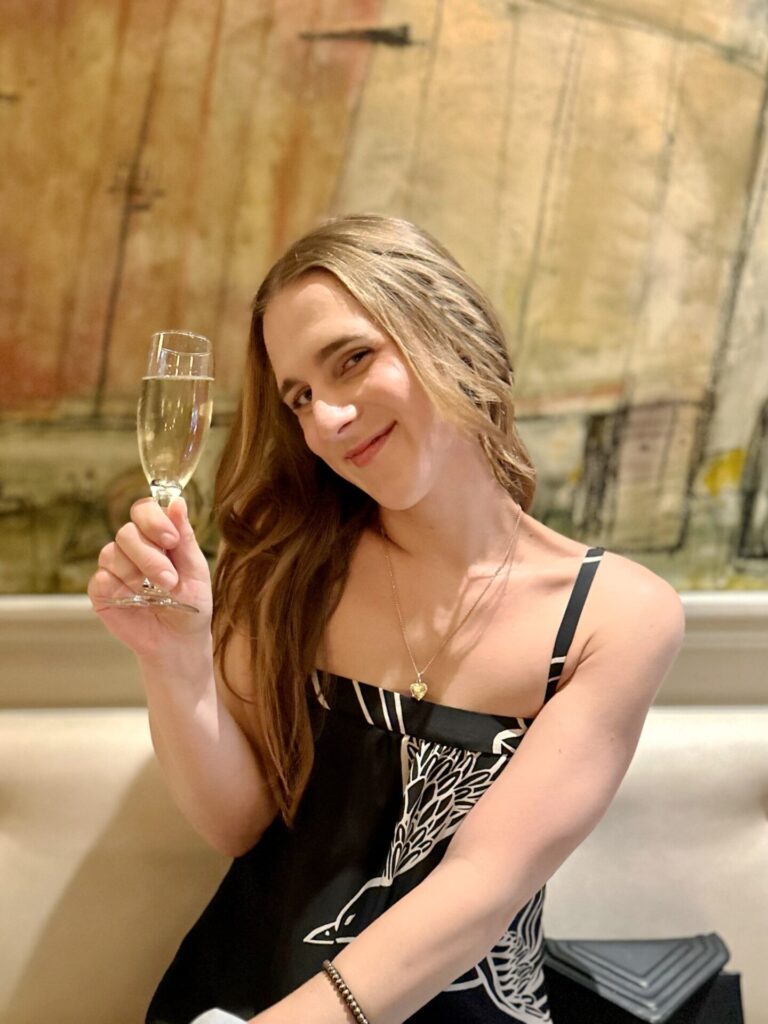
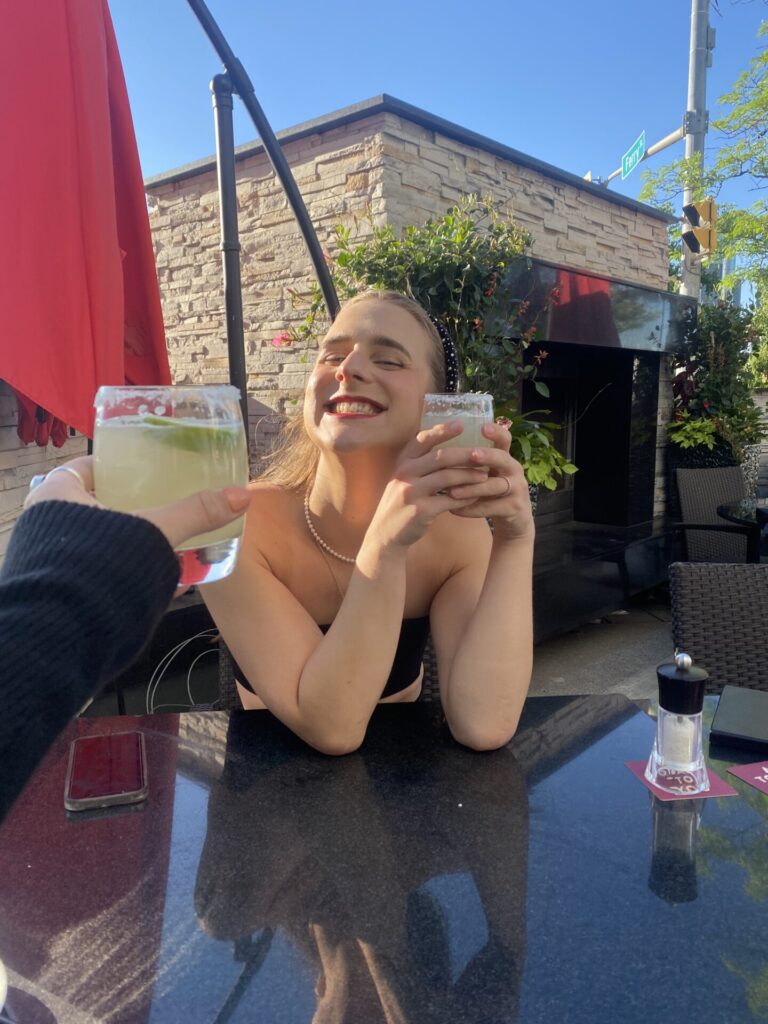
The employee experience…
MM: From an employer-employee perspective, what can operators and managers do to create a safe, inclusive culture for LGBTQ2S+ team members?
NN: I would love to tell a little story about when I was working for Oliver & Bonacini at The Carlu. Oftentimes we were working large conferences or weddings or parties. It was very team-oriented—a lot of people and a lot of moving parts. Before we would start our shifts, there were always these big team meetings and while we were eating our staff meal together at these big, long tables we’d have a couple of minutes to set our plans and delegate tasks.
I was working for The Carlu for about a year when I was beginning my transition. I was changing my pronouns and starting to adjust to my new life, so I obviously I went to my management, and I felt quite comfortable and safe. I told my manager, Jason, that this is who I am, and this is how I’m going to live my life, that I’m changing my pronouns, and my presentation is probably going to look a little bit different. At the time, there were gendered uniforms at The Carlu and so I talked about how I would like to switch and start wearing the other uniform. He said, “First and foremost Niki, I just want you to be happy and I want you to feel safe, and I want you to feel like you are a valuable member of this team because you are. Whatever I can do to make this the most comfortable for you, let’s do it. If you want me to talk to the staff, I can start spreading the word, or if you want to talk to the staff, we can have a conversation with them. How do you want to approach this?”
He created an environment where I was able to really kind of choose my own adventure and that made me feel so confident and so comfortable in the workplace. A day or two later, when we all sat down for that big staff meal, he said, “Everybody, just before we jump into tonight, I really want to draw attention to something that Niki and I have been talking about and she wants to talk to the group, so can we just give Niki a couple minutes of our time and be really appreciative?” I was able to just, like, stand up. Because I had the support of my management behind me, I was able to speak to 40 people at once, you know and just say, “Hey guys, this is what’s going on in my life, and this is how things are kind of changing. I really enjoy working with you guys, and so if you could do your best to try to evolve alongside me, that would be great.”
So, establishing a one-on-one connection with each and every one of your employees, regardless of their human experience, I think is the sign of a great manager and a great leader. Having those one-on-one relationships and to be able to fine tune and tailor what the individual employee needs I think is the way to create a very positive work environment. As a Queer person, that’s what made me feel so confident to step into those new parts of my skin that I was still kind of exploring at the time. The way that a team is able to come together is by nourishing each individual employee. I think that that is probably the most important thing that management can do to make a Queer employee feel the most relaxed and at ease.
MM: That’s an extraordinary story. Have your other hospitality roles been as supportive?
NN: I did have a very brief stint at a certain chain restaurant I won’t name—the kind of place frequented by business types and people downtown to see a game. After about six weeks, I went to my general manager in full-blown tears and said, “I don’t think I can cut it here. This isn’t for me.” It was the biggest corporation that I had ever worked for, and I really had that sensation of just being like a cog in the machine and it just didn’t feel safe. I was working down in St. Lawrence Market the year that the Jays were doing really well, and we had all these people coming in for that. As a visibly very openly Queer person, it’s very, very difficult to find safety and comfort and a sense of ease working for people you actively feel are either judging you or are in some sort of disagreement with the way that you live your life. There was a lot of that energy all the time. There was also such an emphasis on upselling in that corporate kind of way, I just felt there was really no room for me to sit down with my management and express how I was feeling.
MM: That energy you describe—what does that feel like?
NN: It’s approaching a table of four or five, and I hate to generalize about the demographic, but a table of four or five cisgender, heterosexual, typically white men, and as I’m speaking and having the interaction with one person at the table about the beers we have on tap or suggesting what kind of specials we have that night, I can see out of my peripheral vision, two other people at the table snickering to one another. I think as a Queer person there’s kind of just been that little thread through my whole life. I’ve always kind been the butt of this heteronormative joke. I know that they’ve never probably even laid eyes on a Trans person before and now there’s a Trans person at their table who’s going to take care of them for the next, you know, 45 minutes to an hour and a half. I guess their only way to deal with that is to turn me into the circus monkey and have a laugh. That kind of stuff is always very, very uncomfortable.
Not so often, but once in a while when I was working on the Ossington strip, I would get some of those kind of energies at the table. But, especially at Libretto, I felt totally comfortable and relaxed to go to my management and say I didn’t feel comfortable serving that table. I knew that I didn’t have to subject myself to that energy and that always felt really, really nice in terms of a good work environment that was very supportive of me and my identity and my human experience.
MM: How can restaurants effectively communicate their welcoming, supportive culture to prospective LGBTQ2S+ employees?
NN: That’s a little tricky… For me, when I was looking for restaurant work in the past, but really for any job, I consider the area of town the job is in, I consider whether I know who goes there and the kind of traffic that comes in and out.
For any scenario I’m moving through in my life, safety is always a little light bulb in the back of my head. There’s always a little bit of a sonar in the background of what’s going on. It’s always about safety, right?
I don’t think I’ve seen this as much in the hospitality world, but in the theatre and the acting world, it’s pretty standard across the board to have a mandate about diversity and about inclusion in your posting. That to me feels like a super easy thing to just add three or four sentences in your job posting saying that you welcome all shades within the human experience spectrum. That feels like a very easy way to start to approach that and then work to be a very compassionate, progressive establishment.
MM: How can foodservice businesses improve their onboarding and training process to make sure all needs are met, and people stay?
NN: My life really is not that different from your life. I have had certain experiences that have kind of shaped the way that my life has gone, but at the end of the day, I get up, I feed myself breakfast, I take the dog for a walk. I just feel that, for so long, there has been such focus on the way that being in the Queer community ‘others’ us. It would be so refreshing to see the trajectory move toward to a place where we are looking for the things we have in common and that bring us together. At the end of the day, I’m trying to clock in. I’m trying to sell the margaritas and mojitos behind the bar and make the benjamins. I don’t think my world view really changes all that much when it comes down to the work. I’m just like everybody else. I’m just as normal. I’m just as funny. I’m just as personable. So, to deny all of the great skills I have that can contribute to the hospitality industry because I have a particular gender expression feels so off balance and inappropriate. It feels so antithetical to the way that I think we’re all kind of trying to progress and move forward, right? If you say you want to be inclusive, and you say you want to be progressive, then do that. Find those conversations, find those corners of discomfort by integrating a Queer person into your team and move through them. Maybe I’m being a little too ‘positive Polly’ about the whole thing, but I hate to be othered. It’s so boring.
I am actually such an open book, and I am so okay to educate as long as I can sense that you are curious and respectful. If someone has questions about my life experience or feels they’re not quite sure how to integrate me into a team, just come and ask me. Let’s have a dialogue about it. I understand the sensation of not wanting to offend, but if I was the type of person who takes offense at those kinds of questions, I don’t think that I would be working in the hospitality industry.
The purpose of the hospitality industry is to create connections with other people, so if I can’t connect with the people I work with, what are we all doing here? Isn’t this the total thesis of what we’re here to do?
Follow Miss Niki Nikita: @missnikinikita



